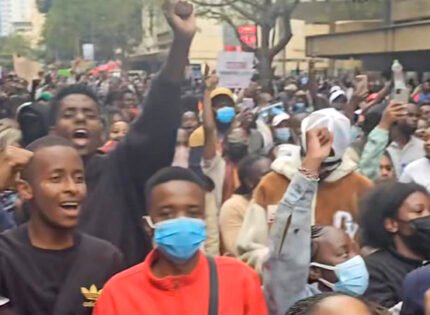In June 2015, in Ottawa, Mr. Deinsberg St-Hilaire fled the scene of a hit-and-run accident in which the victim, Andy Nevin, died. For nine days, Mr. St-Hilaire hid from the police and attempted to dispose of evidence. St-Hilaire claimed he fled the scene because, as a “man of colour,” he was afraid of turning himself in to “racist police”. Four years later, the Ontario Superior Court found St-Hilaire not guilty of dangerous driving causing death. He subsequently plead guilty to a charge of obstruction of justice and received 100 hours of community service.
Unquestionably, in a hit and run causing death accident our first human reflex is to seek retribution for the senseless loss of a loved one. However, “revenge” is not one of the objectives of our criminal justice system. Indeed, the “fundamental purpose” of sentencing is to contribute, along with crime prevention initiatives, to respect for the law and the maintenance of a “just, peaceful and safe society by imposing just sanctions.” The process of determining the appropriate sentence includes the enumerating of aggravating and mitigating factors, which include personal circumstances, circumstances of the offense, and circumstances of the proceedings.
However, R v St-Hilaire was not the first time that a judge considered the racial background of the accused as a mitigating circumstance. The 2018 R v Jackson Ontario Superior Court judgment had set a new standard for social context in sentencing law involving Black Canadians. Three years later, the Ontario Court of Appeal opened the case of R v Morris (2021), with a revolutionary admission that “it is beyond doubt that anti-Black racism […] continues to be, a reality in Canadian society, and in particular the Greater Toronto Area”.(GTA) The appellate court’s powerful declaration aimed that anti-Black racism be “acknowledged, confronted, mitigated and, ultimately, erased”. (Morris par.1) The vital question answered Morris was how should trial judges take into consideration evidence of anti-Black racism at the sentencing stage of a criminal prosecution.
In March 2023, in R v Roberts Judge Alison Wheeler of the Ontario Court of Justice cited systemic anti-Black racism as a factor in her written reasons to hand a conditional sentence to Vaughan Oscar Roberts. Roberts, a young Black Ajax man, had shot and killed a “racist” white Kingston man in a case of self-defence. Anti-Black racism was recognized beyond the GTA.
The bottom line here is that the entire criminal justice system can no longer claim to be “colour blind” in the way it is meting out its functions. From policing on up the chain, systemic discrimination has been exposed for everyone to see. In Morris, once and for all, the Ontario Court of Appeal urged a come to “Jesus” awakening around the reality of “anti-Black racism” within Canada; that unfortunately includes Quebec!
One common response we hear when Black Canadians decry racism and call for action, is that the issues are being exaggerated and concerns about anti-Black racism are being inappropriately imported from the United States. While most Canadians are still grappling with the reality of the existence of anti-Black racism, Blacks, in Canada as in south of the border, are the most targeted group by racial hatred! Here in Quebec, when called on it, we hear a familiar refrain: “Quebecers are not racist”, and to suggest otherwise amounts to “Quebec bashing”!!!
Everyone’s reaction to their abuse is different and can be expressed in different ways depending on the circumstances. Some end up killing their abusive husband, while others end up running away from the police or kill someone is self-defence. While the decision by the Ontario appellate court in Morris represents a move towards accounting for racism against Black offenders in the Canadian criminal justice system, it can only be seen as a band-aid solution. Only structural changes can work towards mitigating the impact of anti-Black racism in our society. This, ladies and gentlemen, begins with the recognition of the systemic existence of the problem, and Quebec is lamentably lagging!
The social cost of racism














